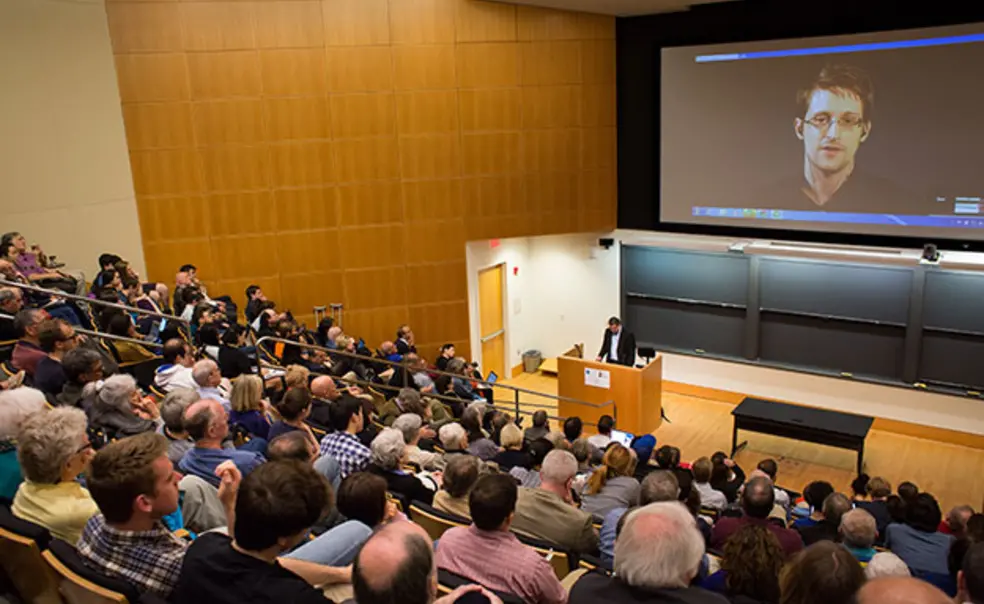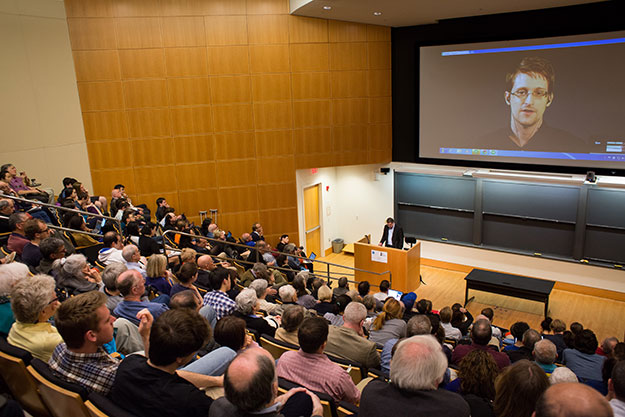Snowden Fields Questions For Princeton Audience, Using Video Link
[
By Deborah YaffeMass government surveillance of electronic communications compromises fundamental American values without making the country safer, former National Security Agency contractor Edward Snowden told a large and sympathetic Princeton audience on Saturday. âThe government has adopted a world view that, if it is out there, we should know it and we should have access to it,â Snowden said via video link from Moscow, where he gained temporary asylum in 2013. âWhen we watch everyone all the time, when we collect everything, we understand nothing.â Snowden arrived in Russia soon after leaking to journalists a trove of classified documents revealing that the American government was secretly collecting vast quantities of data on telephone and Internet use. He faces criminal espionage and theft charges that could send him to prison for decades. More than 350 people packed the Friend Center auditorium and spilled into two nearby overflow rooms to hear Snowden, a boyish-looking 31-year-old in rimless glasses, as he was interviewed by Woodrow Wilson School lecturer Barton Gellman â82, one of the journalists who received Snowdenâs leaks. About 100 stayed for an afternoon conference, âNow That We Know: Technology, Law, Journalism and Policy after Snowden,â listening as a dozen experts discussed the implications of the Snowden revelations. The dayâs events were co-sponsored by the Center for Information Technology Policy, the Program in Law and Public Affairs, and the Woodrow Wilson School. In his conversation with Gellman, Snowden urged his listeners to stand up for the fundamental liberties, including freedom from unjustified searches, that he said are threatened by the NSAâs surveillance programs. Compiling massive databases of so-called âmetadataâ about communications â such details as when and where a telephone call was made, or how long it lasted â gives security services access to information about millions of people who are not suspected of any crimes, he noted. âThatâs called pre-criminal investigation, and thatâs never been a standard in any liberal democracy,â Snowden said. âTheyâre not wrong that it would give them an investigative advantage, but thatâs not the way that liberal societies work.â












No responses yet